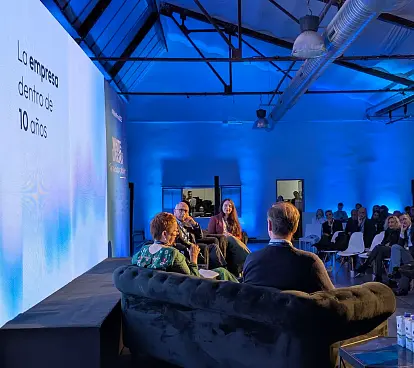
Envisioning a sustainable future guided by the technology sector
July 12, 2023
Amidst technological advancements and rapid transformations they bring, businesses face an increasingly pressing challenge: leading development of business models that are sustainable for the environment and people. At SNGULAR, we have set out to explore how technology companies can not only commit to this purpose but also become catalysts for the necessary change to achieve it.
Firstly, let's consider a highly relevant reality in our sector: software development. If not done correctly, it may be unsustainable in the long run. This extends beyond the economic perspective, where inefficient code can lead to higher costs, to also encompass the environmental aspect. With every additional line of code, software becomes heavier and consumes more energy. Here lies the industry's opportunity to minimize its carbon footprint, and the answer could be as simple as adopting coding best practices rules which emphasizes the well-known mantra in the software world, "less is more."
A second approach to addressing this challenge is the institutionalization of sustainability within companies. This could be achieved through the creation of offices, teams, or responsible individuals who lead sustainability initiatives, enabling the development of strategies to streamline our activities, from operations in workplaces, data centers, to employee transportation, among many other aspects.
Furthermore, we must be aware of the importance of considering whom we choose to collaborate with on our projects, as sustainability criteria should also be part of our partnership decisions, just as ethical criteria have always been. In that sense, it would also make sense to partner with other companies for the development of sustainability-oriented software, allowing other companies and individuals to minimize their environmental impact, thus generating a positive domino effect.
Now, to achieve this paradigm shift, we must support our clients in their own transition towards sustainability. This means adding a fourth axis of environmental sustainability to the traditional three (people, technology, and business) in our processes and methodologies. To do so, it is essential to partner with sustainability experts who can work synergistically with our technology teams.
Additionally, we must establish strategies that demonstrate consistent commitment to sustainability, both internally and externally. This includes mapping out projects that already have sustainability requirements to better understand market needs and seize business opportunities.
Of course, effective communication of our vision and commitment to sustainability is crucial to avoid "Greenwashing." Obtaining sustainability certifications and affiliating with organizations that validate our commitment can be a good starting point. Furthermore, we must raise awareness among our team about the carbon footprint they generate and foster sustainable habits, possibly through gamification or by collaborating with companies already committed to sustainability.
It is also crucial to consider key metrics that best represent sustainability priorities to track our progress and understand the opportunities we may be missing if we do not adopt a sustainable approach to our business model.
We cannot conclude this article without addressing the social component as part of the ecosystem in which the company operates. In this era of significant technological development, it is important to consider important aspects such as job displacement by Artificial Intelligence and seek solutions in that regard. At this point, we raise some questions:
- Should we lead the conversation on how humans and technology can work in harmony?
- How can we create a more ideal collaboration between humans and machines?
- How do we tackle the gender gap in our sector?
These are all questions that we at SNGULAR aim to gradually answer, and we would like to have the collaboration of our clients and partners to collectively face the new challenges presented by the future.
Our latest news
Interested in learning more about how we are constantly adapting to the new digital frontier?

Event
November 24, 2025
White Mirror 2025: the blank mirror reflecting what is yet to come

Insight
September 1, 2025
Sandbox: an environment where you can experiment and test changes before deploying them to production

Insight
February 5, 2025
Pharmaceutical tenders: top 5 obstacles and how to overcome them

Tech Insight
January 13, 2025
How to bring your application closer to everyone
